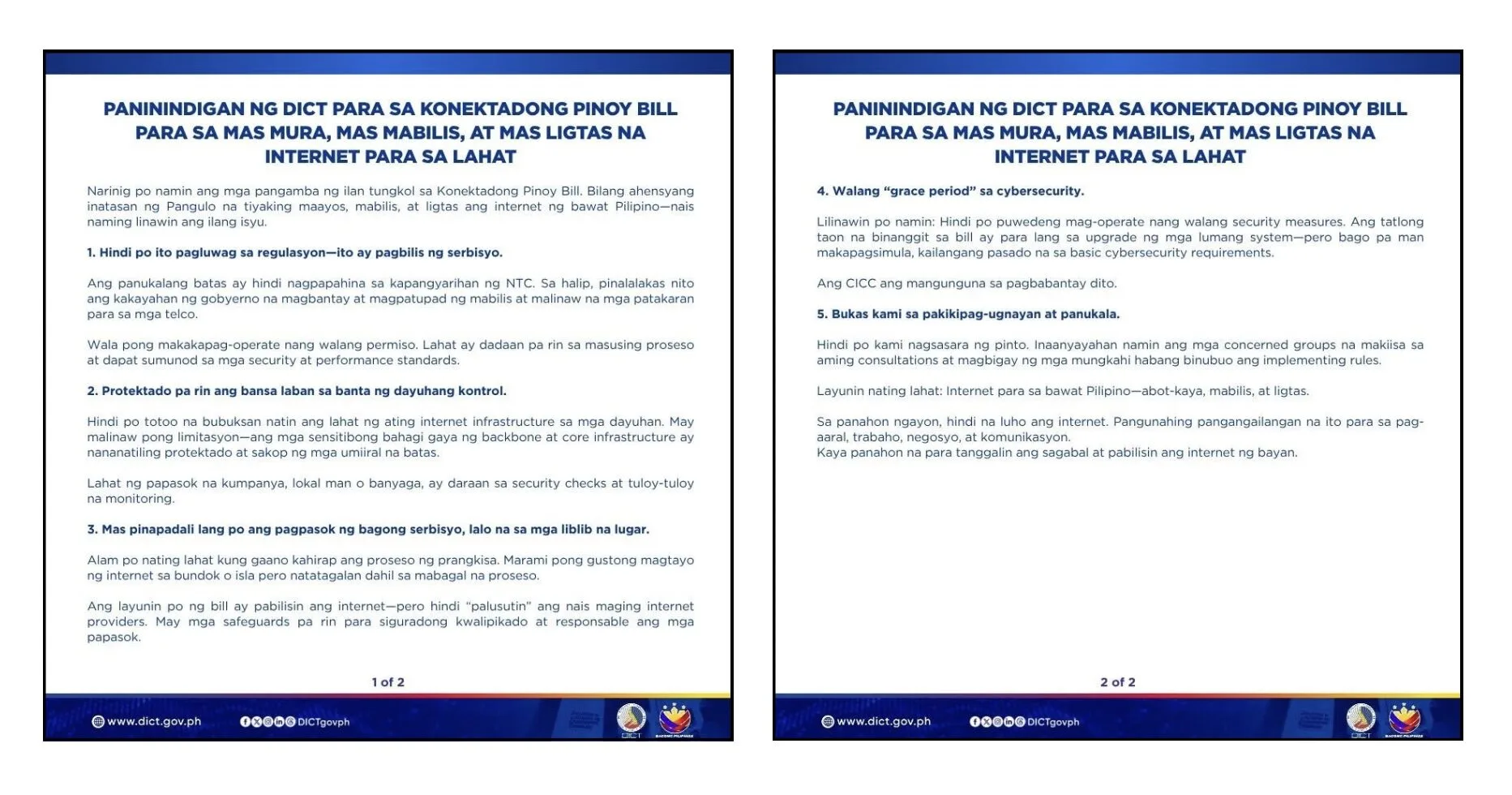About Us
DICT reaffirms support for ‘Konektadong Pinoy’ Bill amid concerns
- DICT, Konekatadong Pinoy, Scam Watch Pilipinas
- Photo courtesy of DICT
By TechWatch PH Staff
Despite concerns from cybersecurity groups and digital safety advocates, the Department of Information and Communications Technology (DICT) on Tuesday, July 15, reiterated its support for the passage of the “Konektadong Pinoy” Bill.
“We’ve heard the concerns raised by some regarding the Konektadong Pinoy Bill. As the agency mandated by the President to ensure reliable, fast, and secure internet for every Filipino, we want to clarify a few things,” the DICT said in a statement posted on its official Facebook page.
The DICT clarified that the Konektadong Pinoy Bill is not about relaxing the regulation but about accelerating the rollout of internet services, especially in underserved areas.
It maintained that the bill does not weaken the authority of the National Telecommunications Commission (NTC); rather, it enables the implementation of more efficient telecom policies.
The agency emphasized that all providers must still undergo strict security and performance checks and denied claims that the bill would cede control of infrastructure to foreign entities.
Core infrastructure remains protected under existing laws, and only qualified providers will be allowed to operate.

Scam Watch Pilipinas raises concerns
Scam Watch Pilipinas, one of the organizations raising red flags about the bill’s cybersecurity implications, argued that the current version overlooks a crucial point: under Republic Act No. 11659, foreign ownership in the telecom sector can go up to 100 percent.
“DICT also claims the bill ‘protects against foreign control.’ But again, this omits critical context. Under RA 11659, up to 100 percent foreign ownership is allowed in telecoms,” said Scam Watch Pilipinas Co-Founder Art Samaniego.
“The Konektadong Pinoy Bill doesn’t introduce new safeguards or mandate pre-operation audits for foreign-controlled entities. In fact, by allowing operations to begin without prior certification, it creates a window for infrastructure access before any security clearance is issued,” he said.
“That’s not just a theoretical risk—it’s real. Especially when it comes to gateway systems and the backbone infrastructure that connects the Philippines to the global internet,” he added.
The DICT also clarified that cybersecurity measures are required before any operation can begin.
“To be clear: No entity can start operating without meeting basic cybersecurity requirements. The three-year period mentioned in the bill only applies to the upgrading of old system. The Cybercrime Investigation and Coordinating Center (CICC) will lead in monitoring compliance,” the agency said.
However, Scam Watch Pilipinas insisted that if the government truly means “no grace period,” legislative amendment is a must.
“If we’re serious about immediate cybersecurity compliance, the only correct course is to amend the legislation to shorten or eliminate the three-year certification window,” Samaniego said.
“Based on the current draft, the DICT doesn’t have the authority to override that timeline. There also appears to be no penalties for failing to get certified within the three years. Section 21 (2) only mentions that a DTIP (Digital Technology Infrastructure Provider) may be suspended or removed if they still haven’t secured certification after the three-year period,” said Samaniego. “So, there’s no legal consequence for lacking a certification before that deadline.”
With the ongoing debate, the DICT said it welcomes further dialogue and encourages stakeholders to actively participate in crafting the implementing rules.
(The Scam Watch Pilipinas and TechWatch PH are both powered by Truth360 Inc.)
